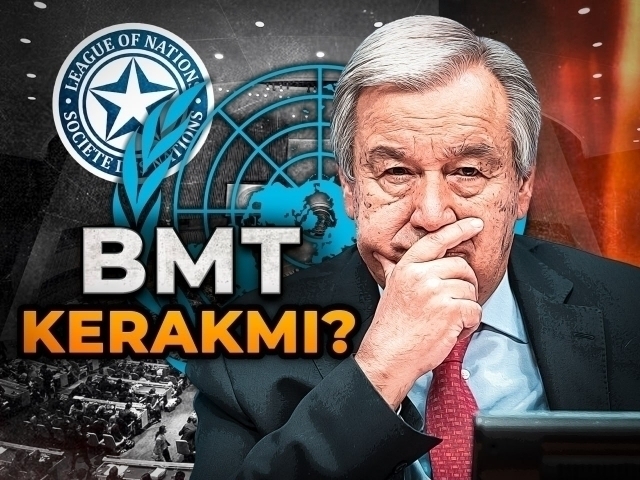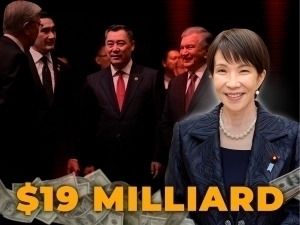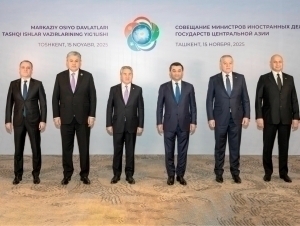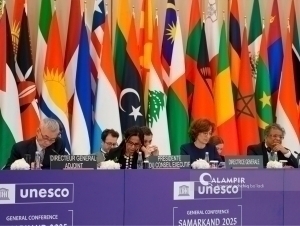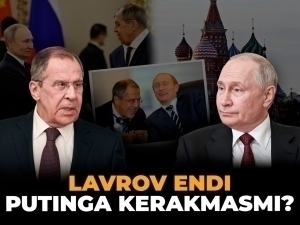Is the UN necessary? How long can it last?
Review
−
13 June 2024 18687 15 minutes
The concept of "redistribution of the divided world" aimed at the major colonial powers is often cited as a primary cause of the First World War. However, this was not the sole reason. One of the most significant factors was the lack of mutual communication between countries. Before the outbreak of the First World War, no truly global organization existed to develop a single international order that encompassed all nations. Conferences were organized to address important interstate political issues, but the absence of mutual communication led to a lack of consensus, laying the foundation for international conflicts.
An unprecedented war ensued, causing immense human losses. For the first time in history, humanity faced such a devastating five-year conflict. After the First World War, major powers recognized the increased need for broad negotiations to maintain international stability. From 1919 to 1920, 27 countries convened the Paris Peace Conference at the Palace of Versailles in France. At this conference, Germany and its allies were held accountable and required to pay reparations. The conference's main achievement was the creation of the League of Nations, the first large-scale international organization in history. Its primary goals included promoting world peace, cooperation, and security among nations, similar to today's United Nations. However, the League's flawed and unjust policies, influenced by its creators, led to the outbreak of World War II before the wounds of the First World War could heal. This second war was even more horrific, involving more countries and causing greater devastation than the first, making it the most destructive conflict in world history.
During World War II, the term "United Nations" was first used in the Declaration of the United Nations on January 1, 1942, at the suggestion of US President Franklin Delano Roosevelt. This term later became the name of the international organization formed after the war. From April to June 1945, the United Nations Conference was held in San Francisco, USA, with representatives from 50 countries, resulting in the approval of the UN Charter. Poland's subsequent approval brought the number of member states to 51. The UN became legally binding on October 24, 1945, when it was ratified by a majority of countries, marking the birth of the United Nations Organization, replacing the failed League of Nations.
Today, opinions on the effectiveness of the UN and its impact on humanity are polarized. Some believe the UN should function as the largest organization on earth, while critics argue that the UN is highly ineffective, mirroring the failures of its predecessor, the League of Nations, and has no future. Both viewpoints have merit and can be analyzed in two parts.
Stereotypes About the UN and Their Causes
Humanitarian Careers asserts that negative views of the UN stem from widespread misconceptions. These misconceptions arise from unfounded information and perceptions, leading many to believe that the UN is ineffective in achieving its goals related to peace and security. Critics often cite instances such as the US invasion of Iraq in 2003, the Rwandan genocide in 1994, the Israeli-Palestinian conflict, and the failure to prevent the Rohingya genocide in Myanmar in 2017 as evidence of the UN's failures. However, these critics often overlook or misunderstand the organization's effective humanitarian efforts. The UN's contributions, including aiding millions of refugees, coordinating global responses to climate change, providing essential humanitarian aid, leading development initiatives in poor countries, managing global communications and aviation, and protecting world heritage sites, often go unnoticed. These activities are vital, helping millions worldwide each year. As a global and neutral entity, the UN has developed systems to address such challenges effectively.
Moreover, critics frequently highlight the organization's complex bureaucratic system as a significant hindrance. The UN's structure, which includes 15 specialized agencies, the General Assembly, the Security Council, the Economic and Social Council, and numerous other bodies, inherently creates bureaucratic complexity. The disparity in power between the General Assembly and the Security Council, coupled with the divided interests of the Security Council's permanent members, exacerbates this issue. The "unlimited" power of the five permanent Security Council members— the United States, Russia, China, the United Kingdom, and France—often overshadows the interests of the remaining 188 member countries. While the organization's size and structure might justify some bureaucratic complexities, the veto power of the permanent members significantly weakens the UN's effectiveness.
Humanitarian Careers also contends that many of the UN's critics are political figures leveraging criticism to enhance their prestige and advantage within their domestic political arenas. In many political circles, mistrust and strong criticism of the UN are prevalent. Attacking a large organization can boost a politician's popularity and prestige. However, these criticisms are not solely for public relations; they also highlight legitimate concerns. Turkish President Recep Tayyip Erdoğan's book, "The World Can Be Fairer," for example, calls for fundamental reforms within the UN. Erdoğan argues that the current system, where five countries dictate the fate of 193 member states, is unfair and needs reform to protect the rights and interests of all humanity, not just a few powerful nations.
"The system in which five countries determine the fate of 193 UN member countries is not fair. The system needs to be reformed. "When we talk about the fact that there are more than five countries in the world, we try to protect the rights and common interests of all mankind, we don't talk about it for the benefit of our own country," he said.
Erdoğan has consistently advocated for significant reforms in the UN, emphasizing that the fate of the planet should not be determined by a "handful of countries" that emerged victorious from World War II. He is a prominent proponent of restructuring the organization to ensure fairer global governance.
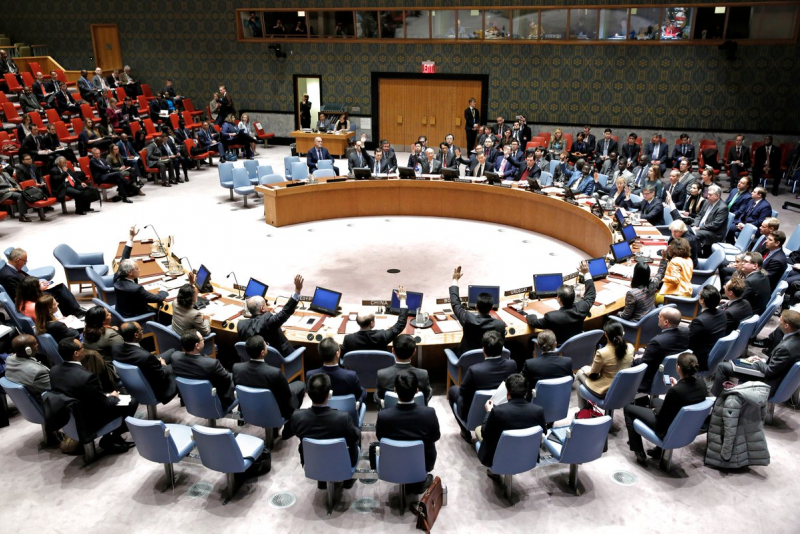
In conclusion, the necessity of a large-scale international organization for fostering cooperation and communication in a globalized world is undeniable. Despite criticisms, the UN's existence is crucial for maintaining peace and stability. Historically, the absence or de facto termination of international organizations has led to global conflicts. Therefore, even critics advocating for changes in the UN seek to reform its unjust structures rather than eliminate the organization. Efforts to preserve and enhance the UN's effectiveness are crucial, as it must avoid repeating the failures of its predecessor, the League of Nations.
UN Repeating the Fate of the League of Nations
The League of Nations was destined for decline from its inception, laying the groundwork for its own downfall. Several factors contributed to this inevitability, which could be seen as a series of critical errors. The contemporary United Nations, in a nod to its predecessor, seems to be repeating similar missteps. What were the fundamental errors made by the League of Nations? What lessons has the UN overlooked from history? Why did the global political order unravel during the League's existence? Let's explore these questions.
Error 1: The Organization's Circumstances and Initial Purpose
Before the existence of international organizations, conflicts between states were often resolved through conferences aimed at punishing the defeated state, reclaiming occupied territories, and imposing reparations. These were the primary objectives of the Paris Peace Conference, which set the stage for the creation of the League of Nations. These punitive measures became ingrained in the League's DNA.
Remarkably, the conditions surrounding the establishment of the UN closely mirror those of the League of Nations. The League was founded by 27 countries, while the UN emerged from the cooperation of 26 countries during World War II. The term "United Nations" was first used in the Declaration of the United Nations on January 1, 1942, following a proposal by US President Franklin Roosevelt. This declaration laid the groundwork for the post-war international organization.
It is arguably not an overstatement to claim that the involvement of 27 and 26 countries, respectively, was a significant factor in the challenges faced by both the League of Nations and the United Nations.
Error 2: The Fate of the Planet in a Handful of Hands
The primary reason for the decline of the first international organization in human history is that the main decisions at the Paris Peace Conference and later within the League of Nations were made within a narrow framework. The "Big Three," comprising the USA, Great Britain, and France, played a decisive role at the conference. Defeated countries such as Germany, Austria-Hungary, and Turkey fell into political decline as a result.
Only the Big Three held significant power, establishing a world order that would last beyond their time. Interestingly, the defeated countries and Russia were excluded from the League, indicating that this international organization served the interests of a select few. This exclusion was the start of a series of errors. Furthermore, the League of Nations introduced the Charter, reflecting the Entente's intention to divide Germany's and Turkey's colonies in the Middle East among themselves. Consequently, France and Great Britain gained control over much of Asia and Africa. Thus, the League of Nations, intended as a means of promoting global peace, instead facilitated the victorious nations' acquisition of the vanquished lands and properties. This harsh reality increased dissatisfaction with the post-war order, leading to the rise of new radical and extremist movements in several Western countries, notably fascism.
The UN Charter is based on a project adopted in August 1944 by representatives of China, the former USSR, Great Britain, and the USA. This was seen as a continuation of the mistakes of the League of Nations. On June 26, 1945, the UN Charter was approved by representatives of 50 countries, following agreements made between Franklin D. Roosevelt, Winston Churchill, and Joseph Stalin at the Yalta Conference during the war. Consequently, some sources recognize that the United Nations was established by the USA, Great Britain, and the former USSR. The UN became legally binding on October 24, 1945, when ratified by the majority of its founding countries. Thus, like the League of Nations, the UN's power was concentrated in a few hands, with these countries holding the "veto" right, which granted them immense control over the organization. This structure influenced the UN's operations, particularly through the establishment of the Security Council alongside the General Assembly. The council included the main founding countries, as well as France and China, the victors of World War II. Notably, it is clear that the UN, similar to its predecessor, provided significant powers to the victorious nations while offering only nominal membership to the defeated. Sadly, from that time to the present, the fate of 193 member countries and over 8 billion people remains in the hands of only five countries.
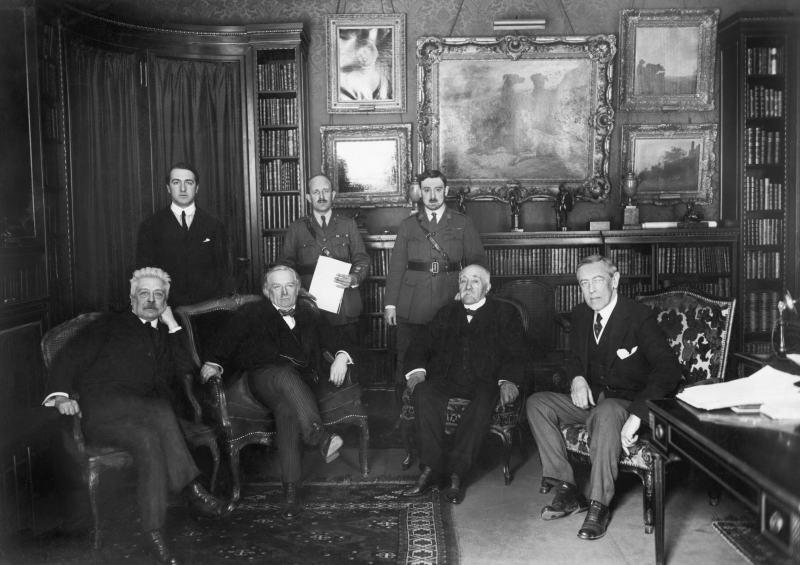
The Security Council of the United Nations is its primary permanent political body. According to Article 24 of the UN Charter, the Security Council bears the main responsibility for maintaining international peace and security. However, over time, the United States and Great Britain have caused political instability and several conflicts in the Middle East and North Africa, while Russia has done so in the Caucasus and Eastern Europe. Additionally, the United States has engaged in several unjustified wars in the Asia-Pacific region. The roles of China and the former USSR in these conflicts should also be noted.
Error 3: Empty Control
The inequitable international order within the League of Nations fueled nationalism across much of Europe. Leaders of the defeated nations began to harness and amplify this nationalist sentiment, promising social justice and attracting large crowds. This process initiated the decline of the League of Nations and paved the way for new leadership on the global stage. Military force became the primary solution for states' problems, rendering anti-armament and conflict resolution agreements ineffective. Consequently, adherence to the Versailles-Washington system, which was central to the League of Nations, diminished from the agendas of various states. This situation parallels current times.
Nations began to pursue their interests aggressively. Britain and France were on one side, while Germany, Italy, and Japan stood on the other. The major powers, the USSR and the USA observed this confrontation closely. The League of Nations, already weakened, saw its foundation further destabilized by Japan's actions.
In 1932, Japan, viewing itself as the dominant power in the Far East, invaded Manchuria and left the League of Nations a year later. Subsequently, Japan occupied Central China. Italy continued the aggression by invading Ethiopia in 1935-36 and annexing parts of Eritrea and Somalia, also leaving the League shortly after. Meanwhile, the rise of German fascism, which was leading to one of history's worst massacres, went unchecked by the League. Even at Germany's lowest point, the League failed to counter Nazi activities. Thus, the League of Nations' documents became meaningless, as the world edged closer to World War II amidst a collapsing international order.
Since its inception, the UN has struggled with oversight, much like its predecessor, the League of Nations. Statistics show that over 480 wars and conflicts have occurred since the UN's establishment, equating to a conflict roughly every two months over the past 79 years. Although it is unreasonable to blame all these wars on the UN, there are numerous instances where the UN failed to act effectively. Expecting world peace is unrealistic when Security Council members can veto resolutions that could halt the wars they initiate. The organizational structure of the UN and the veto power of its members do not align with contemporary needs.
The UN's structure inherently supports inequality. It comprises two main bodies: the General Assembly and the Security Council. The General Assembly includes all member states, but the Security Council's composition is widely known to be unjust. Even if a resolution garners sufficient votes from the 193 member countries, a single Security Council member's veto can nullify it. With the veto power concentrated in five permanent countries, it is clear that justice and logic have long been absent from the UN's headquarters. This veto power is a fundamental cause of many global wars, conflicts, and massacres. The Security Council's flawed organization is a major reason for the lack of effective control.
Error 4: Saying "OK" to an Aggressor
During the collapse of the League of Nations, Germany, recovering from World War I, experienced significant military and economic growth. The fear of German fascism greatly influenced the actions of the League of Nations and its key figures. However, fear was not the only factor at play. Western elites sought to protect their interests by acting against the USSR and Czechoslovakia, both members of the League. They decided to appease Hitler's government by ceding part of Czechoslovak territory and redirecting the German invasion eastward towards the USSR. This policy of appeasement, later known as "concession to the aggressor," ultimately paved the way for World War II. Consequently, this strategy backfired, much like a snake devouring its own tail.
Violence at the UN
At the United Nations, the issue of violence takes on a different form. The fact that political instability is perpetuated by its founding members is perplexing. This indicates that the problem is deeply rooted and complex. A major source of this violence is the veto power held by the five permanent members of the Security Council. Although the workings of the veto power have been discussed, its usage and implications, particularly by these five countries, warrant further examination. To date, the veto has been used 293 times, with the USSR and its successor, Russia, accounting for over 120 instances, often to block new memberships. The United States has also utilized its veto extensively, frequently to block resolutions against Israel, one of the most significant occupiers of the 20th and 21st centuries. Such actions by Security Council members undermine the UN's credibility. This discord could spell the downfall of the UN, particularly in regions like the Middle East and Eastern Europe.
Today's UN
The UN headquarters is located in New York City, which is designated as an international zone. This means that it belongs to all UN member states, not just the United States. The flags of member countries are displayed in alphabetical order, starting with Afghanistan and ending with Zimbabwe. The UN also has its own flag, which is light blue with a white emblem in the center featuring a world map encircled by olive branches, symbolizing peace. However, the peace symbol has yet to manifest fully in reality.
The UN Charter allows for the limitation or revocation of membership for countries that do not adhere to its principles. However, no country has been expelled from the UN to date. This is one significant distinction between the UN and the League of Nations.
The UN celebrates various international holidays, including:
- International Women's Day (March 8)
- World Environment Day (June 5)
- International Literacy Day (September 8)
- International Day for the Eradication of Poverty (October 17)
- World AIDS Day (December 1)
- Human Rights Day (December 10)
However, the organization has yet to celebrate a "Peace Festival." While many books could be written about the UN's activities, prominent chapters would cover Israel's actions in Palestine, Russia's invasion of Ukraine, the U.S.'s intervention in Libya, and the widespread devastation in the Middle East.
